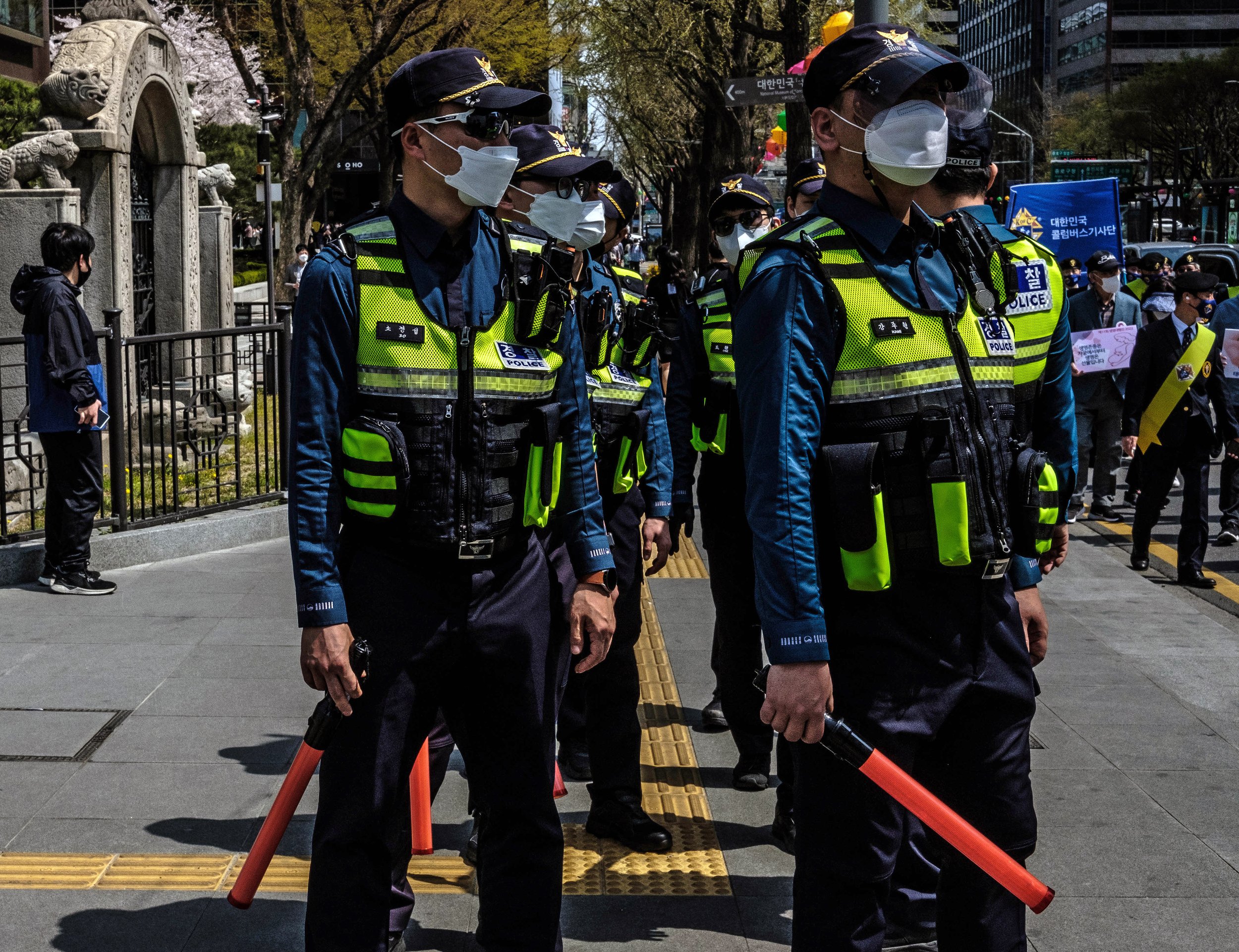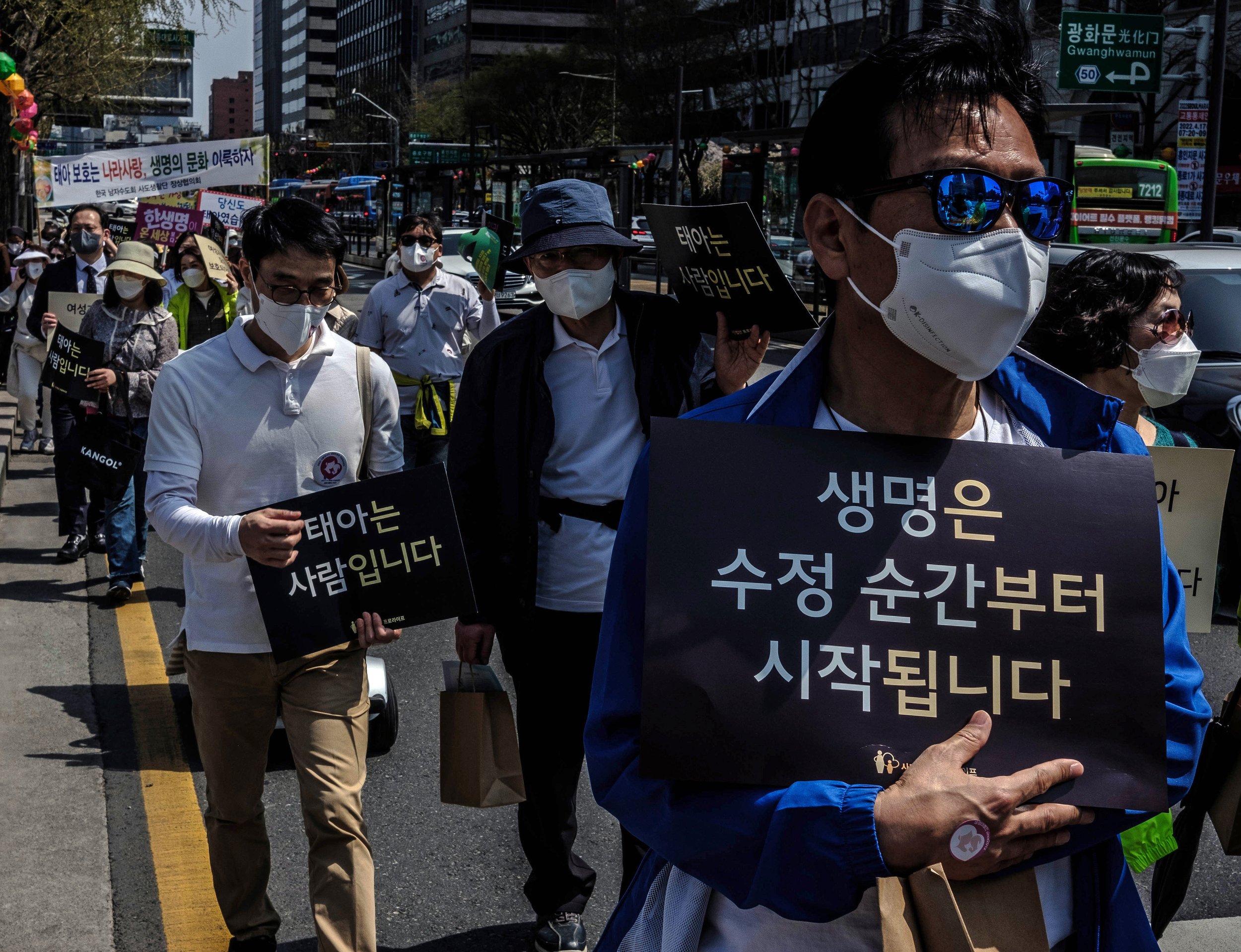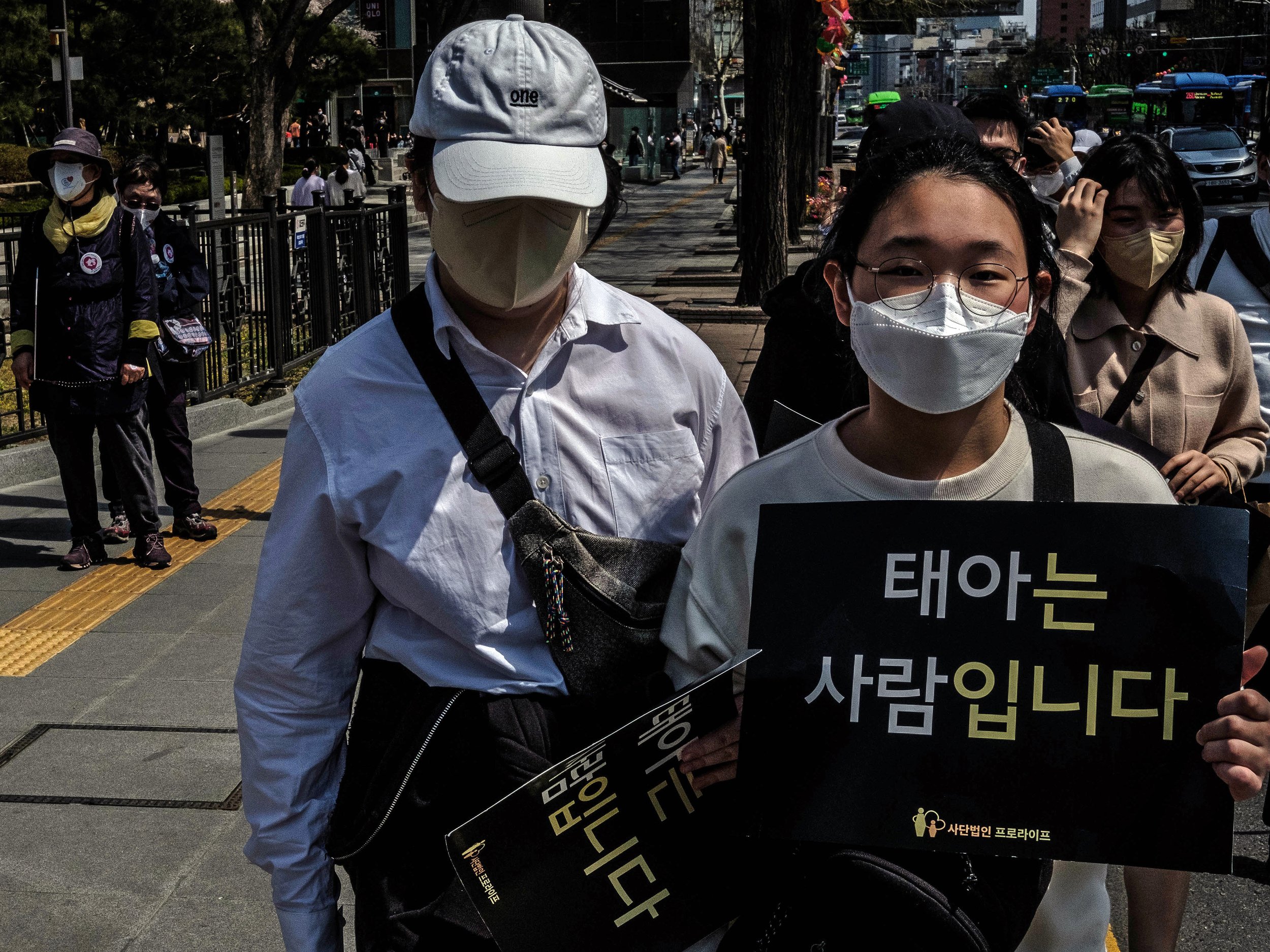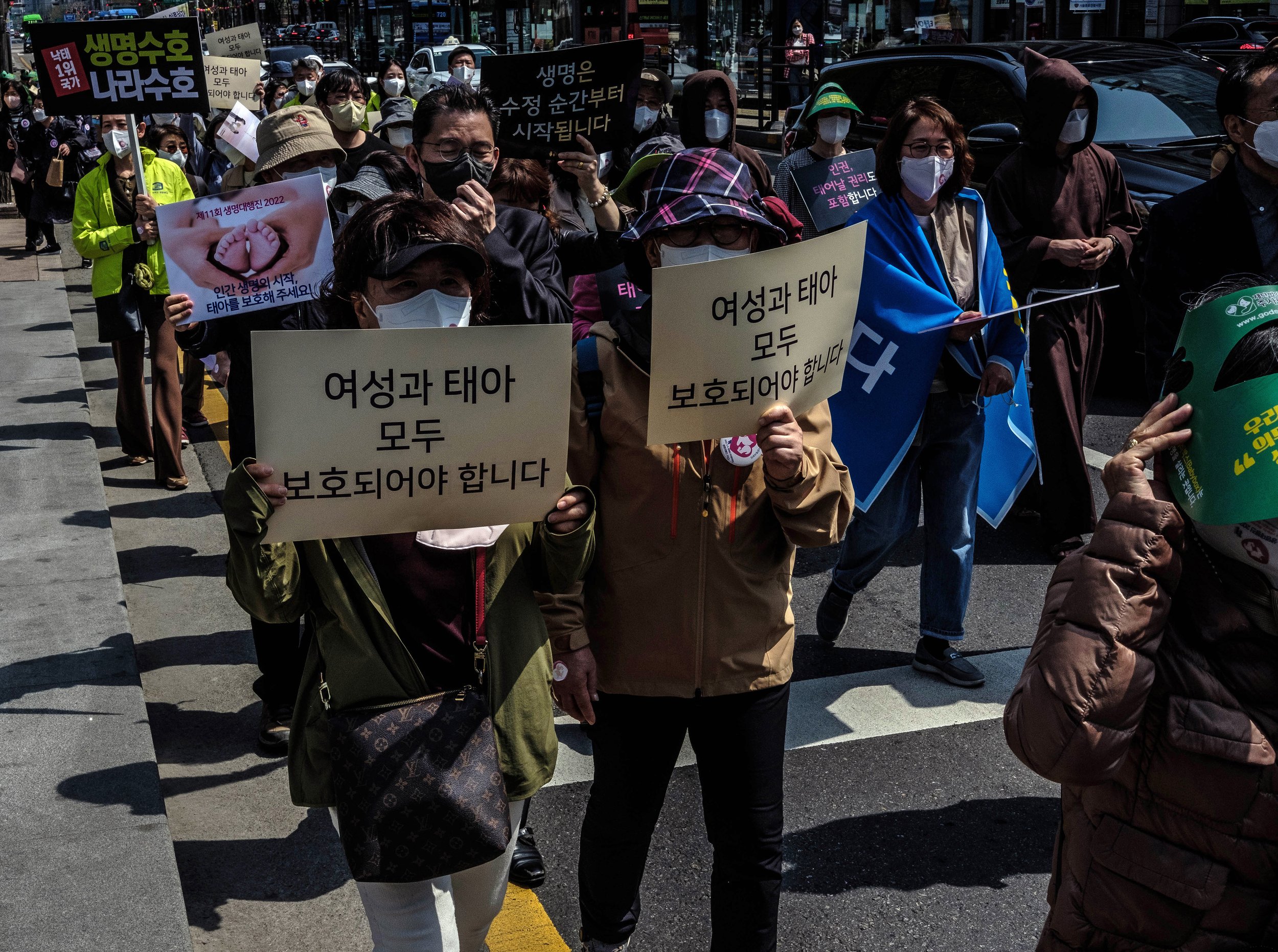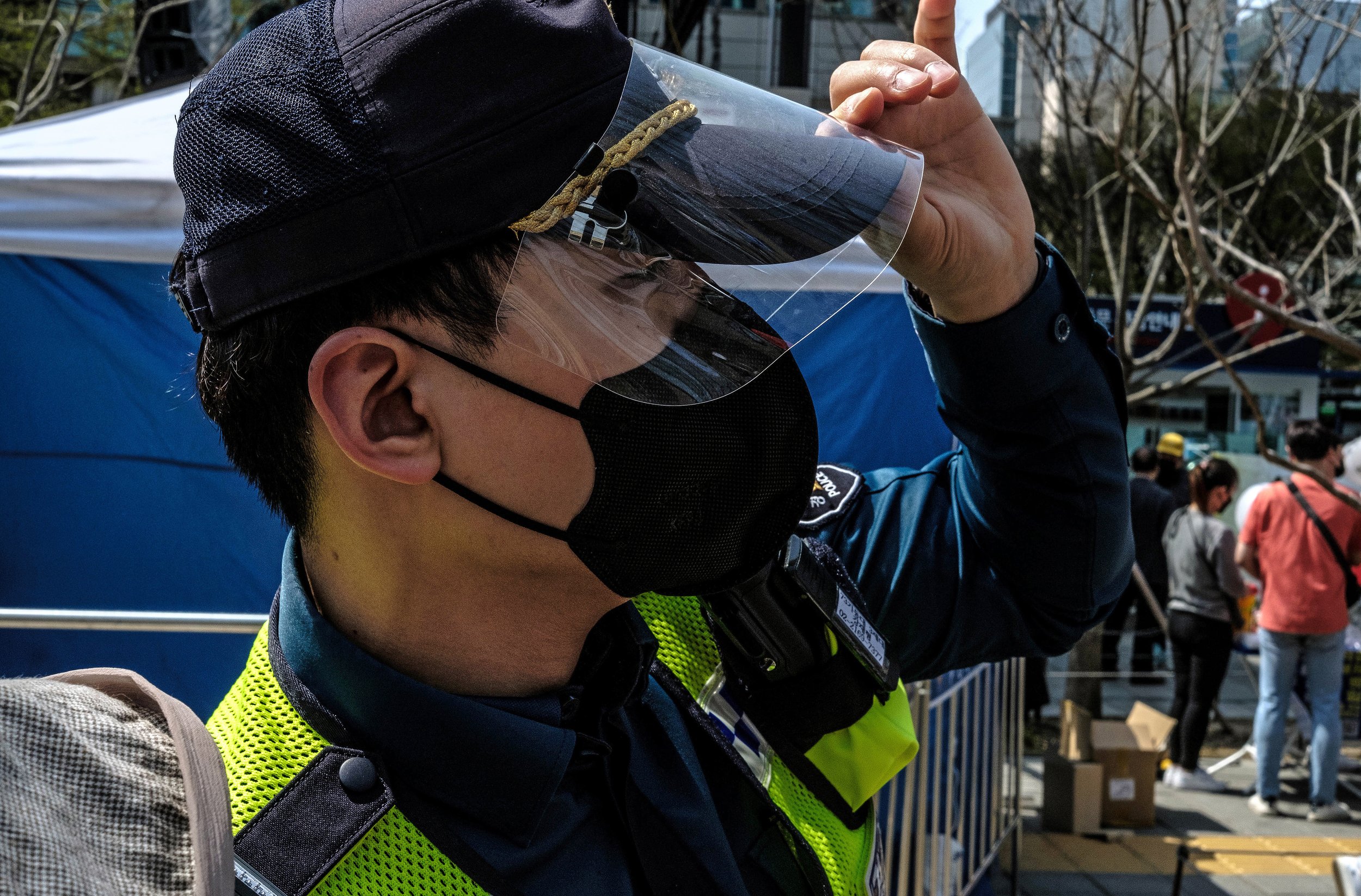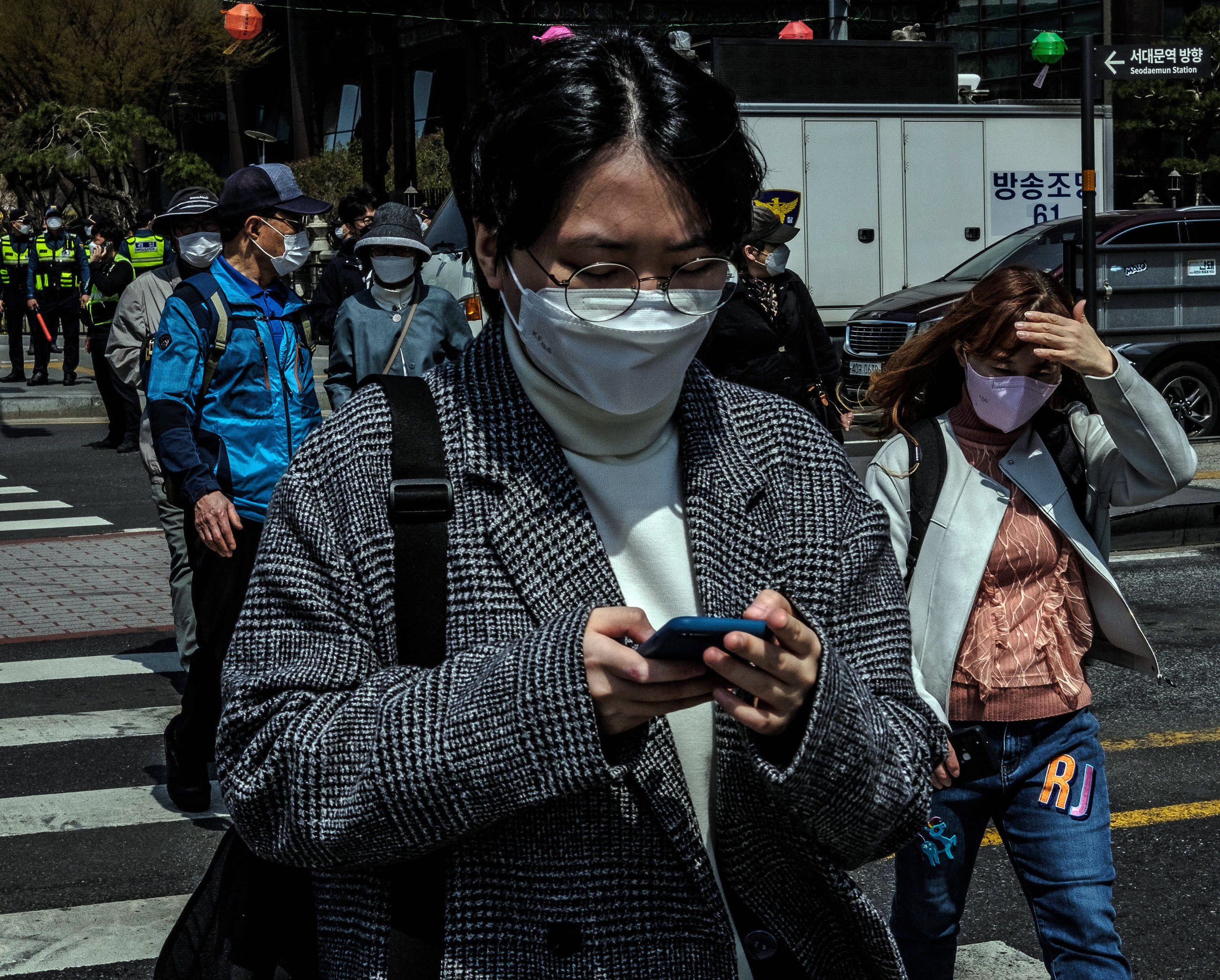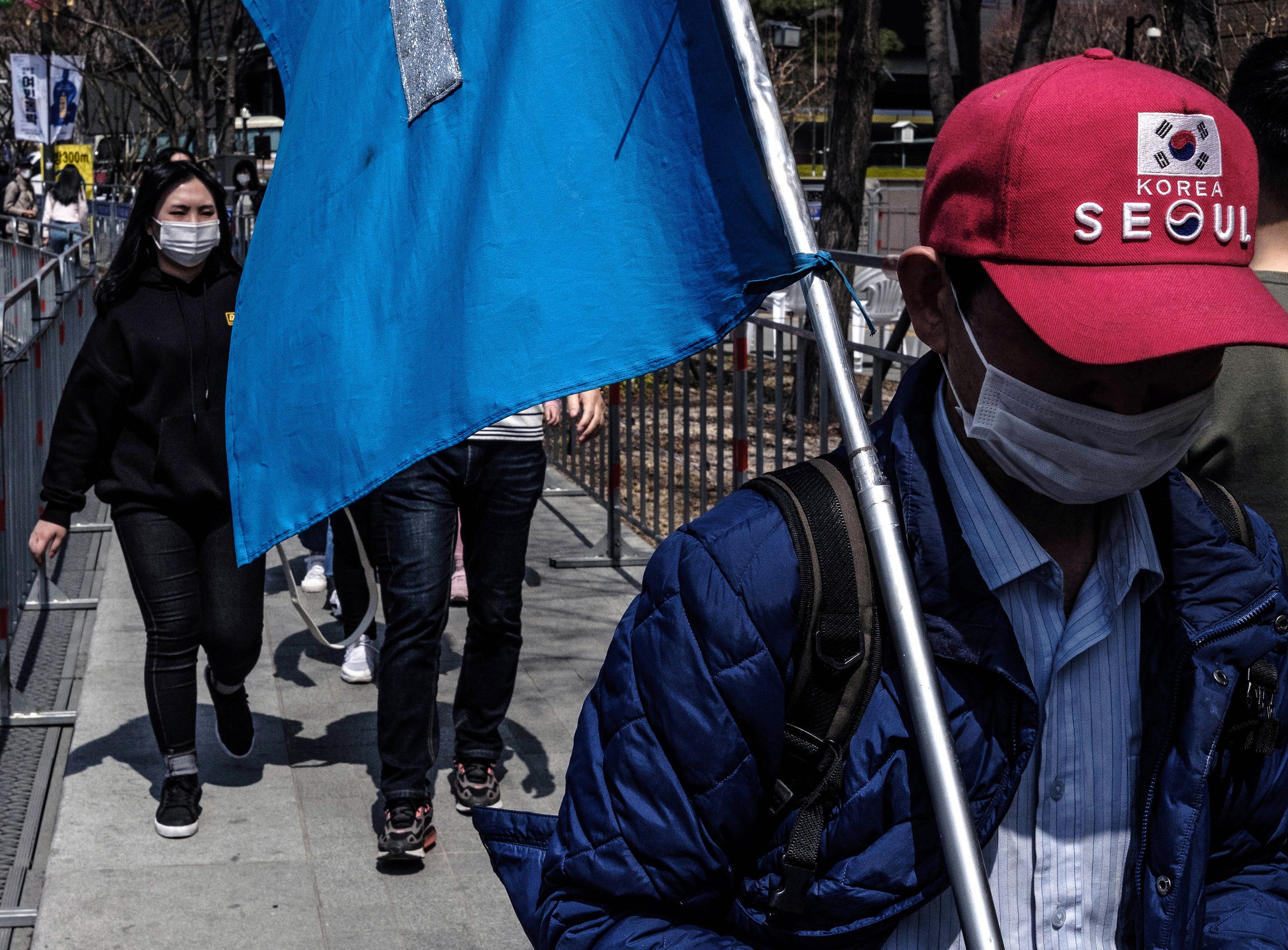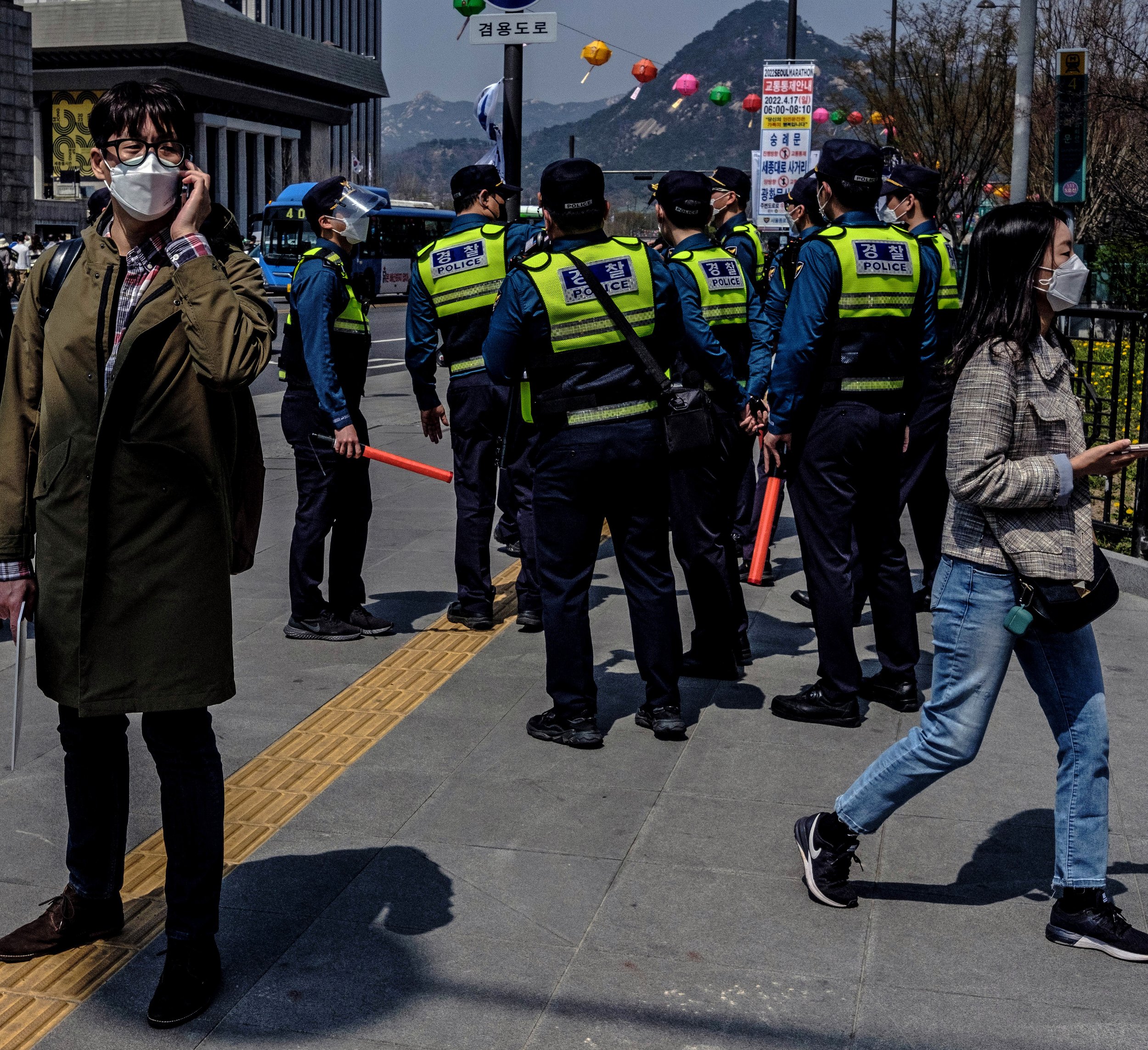Letter from Seoul
by Michael Kennedy
Police do not carry guns in Korea. This would be especially poor optics for a Pro-Life demonstration in downtown Seoul.
It’s never good to display symbols of violence while people advocate the sanctity of life.
Hundreds of people demonstrated recently near Gwanghwamun Square in downtown Seoul against a new law that legalizes abortion after being banned since 1953.
The three-year Civil War fought between the North and the South on the Korean peninsula from 1950-53 – known as the Korean War, left the South free to pursue democracy.
Seoul is the crown jewel of South Korea, officially known as the Republic of Korea – and as a measure of its miraculous rise like the Phoenix of Greek legend, it’s also known informally as The Republic of Samsung.
If the military of a nation-state shoots people dead for trying to leave the country, then they are truly living in a vast prison camp. This describes North Korea perfectly, a gangster state run by Kim Jong-un, a textbook sociopath.
There is only one Korea, and Seoul – a city of nearly 10-million people on the mile-wide Han River, is literally the heart of the country.
When Koreans want to leave the country, they head for Incheon International Airport, a world-class facility about 30-miles southwest of Seoul, near the Yellow Sea. There are no worries about being shot dead by the military.
When Koreans want to express opinions about important political and social issues, they frequently gather in downtown Seoul, and march to Gwanghwamun Square – considered the heart of Korean history. There are no worries about being shot dead by the police.
When political passions are displayed in the streets of Seoul, the public does so with a level of respect for protocol that is to be envied. Differing viewpoints are the hallmark of an open society, yet there are no opinions among Koreans so strong that violence is the last word.
Groups like the Pro-Life demonstrators last Saturday obtain a parade permit ahead of time through proper authorities. After approval is arranged, a contingent of Seoul police is assigned to “serve and protect,” and maintain basic order. While the police take these responsibilities seriously, the level of respect among Koreans for tradition and group conformity almost translates into the uniformed officers serving as chaperones.
In Korea, compulsory military service applies to all men between the ages of 18 and 28, and they are required to serve about 18-months. If the military branches have met their quotas, young Korean men often serve as auxiliary police officers.
If, however, you are a member of BTS, the wildly popular K-pop sensation, you might be exempted from this obligation. There is both an exemption and an alternative service system for athletes and artists who are recognized for promoting national prestige - winning designated international awards or national contests.
In American street vernacular, this is expressed as: ‘Money talks, and bullshit walks.”
The status of BTS and compulsory military service remains an unresolved issue – for now.
When older groups of demonstrators march through downtown Seoul, the auxiliary police are often young enough to be their grandsons. And, as politically-minded senior citizens everywhere need to rest and enjoy some refreshments and snacks, even if the agenda is serious, the optics often suggest that grandsons as auxiliary police are simply making sure the grandparents do not exert themselves … too much
During outgoing President Moon Jae-in’s term in office, there was no mainstream media coverage of political demonstrations in Korea. Yet this did not discourage his critics and others from “taking it to the streets” nearly every week until the COVID-19 pandemic changed so many things.
Korea sits at the intersection of tradition and liberal ideals, and the issue of abortion is guaranteed to be divisive in nearly every culture.
As for tradition, a monarch of the Joseon Dynasty ruled the Korean peninsula from Seoul for 750-years, starting in 1392 – a century before Columbus screwed up on his way to China, and encountered the Western Hemisphere. The Japanese put an end to the Joseon Dynasty in 1910, when they invaded the peninsula.
The last Joseon Emperor, Yung-hui, refused to sign over control of Korea to Japan, but the Japanese forced Prime Minister Lee Wan-Yong to sign for the Emperor instead.
The last century brought unimaginable changes to the Korean peninsula – and yet Korea has emerged from countless upheavals to become a fledgling democratic republic influenced by the ideals of the United States.
Yet the increasingly activist U.S. Supreme Court has a six-seat phalanx ready to dismantle the liberal ideals of post-1960 America – especially the abortion rights guaranteed by Roe v Wade. This has the potential to set off conflict in America that will make the social turmoil of the last decade look tame.
To say Korea is a fledgling democratic republic in no way diminishes how the country has adapted to the fast-paced challenges of The Information Age and become an economic powerhouse with the world’s 10th largest economy.
In case anyone is wondering about the status of the Joseon Dynasty heir, His Imperial Highness King Yi Seok has his Samsung cell phone on stand-by for the call back to Sedong Palace.
Yet in 2018, the 77-year-old Emperor wannabe, who had lived in a run-down van for years, named the 34-year-old Prince Andrew Lee as his successor. However, the current Crown Prince is a Korean-American who lives in the Sodom and Gomorrah of Nevada known as Las Vegas.
Not to be outdone, the current heir to the Stuart Dynasty of England is a chap who calls himself Franz, the Duke of Bavaria. He’s also waiting by his cell phone for the call from London. And for Russians who may find Putin deranged, morally repugnant and embarrassing, Grand Duchess Maria Vladimirovna Romanova is hanging out in Madrid, waiting for that special call back to the palace in St. Petersburg.
Yet in Seoul, there has been a significant changing of the guard - called the popular vote in a democracy, and political maverick Yoon Suk-yeol from the conservative People Power Party will succeed President Moon Jae-in on May 10.
Yoon has no policy or governing experience and was HYPERLINK elected last month with the narrowest margin in the nation’s democratic history. He faces the test of rallying the opposition-controlled National Assembly and a divided nation weary of income inequality, soaring housing prices and empty promises of hope.
Central to Yoon’s foreign policy is “rebuilding” Korea’s alliance with the United States, a nod to Washington’s frustrations with the outgoing government of President Moon Jae-in, whose foreign policy ambition of brokering peace with North Korea made him wary of jeopardizing relations with China and Russia, North Korea’s allies.
Korean presidents serve a five-year term with no possibility of a consecutive second term. During Moon Jae-in’s presidency, there were regular demonstrations against him through downtown Seoul to Gwanghwamun Square, where he was routinely denounced as a Chinese lackey, a North Korean stooge, a Communist, a putz, a clown, and a hundred-proof fool. The new President will eventually face his share of dissent, as well.
Korea may sit at the intersection of tradition and liberal ideals, but geography is destiny, and this country is a peninsula of China, with Japan only 575 miles away - and Vladivostok even closer at only 464 miles.
By plane, Seoul is an equal distance from both Beijing and Tokyo. During the Korean War, General Douglas MacArthur never spent one night on the peninsula; he always commuted from his Command Headquarters in Tokyo.
Everyone knows that as Ukraine goes, so go the Baltic States in Europe. Everyone knows that as China has already brought Hong Kong to heel, Taiwan is next.
Koreans do not want to talk about the fate of this peninsula once Taiwan is crushed by the People’s Liberation Army of China – yet Xi Jinping would like nothing more than to drive the U.S. military out of South Korea and bring the entire peninsula under Chinese control.
With this scenario a possibility, it’s not surprising that a good many people here have U.S. dollars stashed in the major banks of Seoul, or beneath mattresses at home. The Korean banks even pay interest on U.S. dollars – at a rate comparable to stateside banks.
When the going gets too shaky here, Koreans will take their U.S. dollars and head for Hawaii or California. There’s always Joseon Crown Prince Andrew Lee in Las Vegas.
In this world anything is possible.
* * *
All photographs are from a Fuji X-T2 with a 27mm lens, set at f11 for 1/1000.

